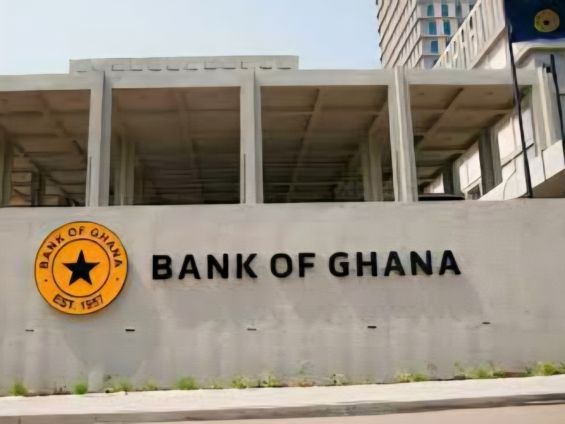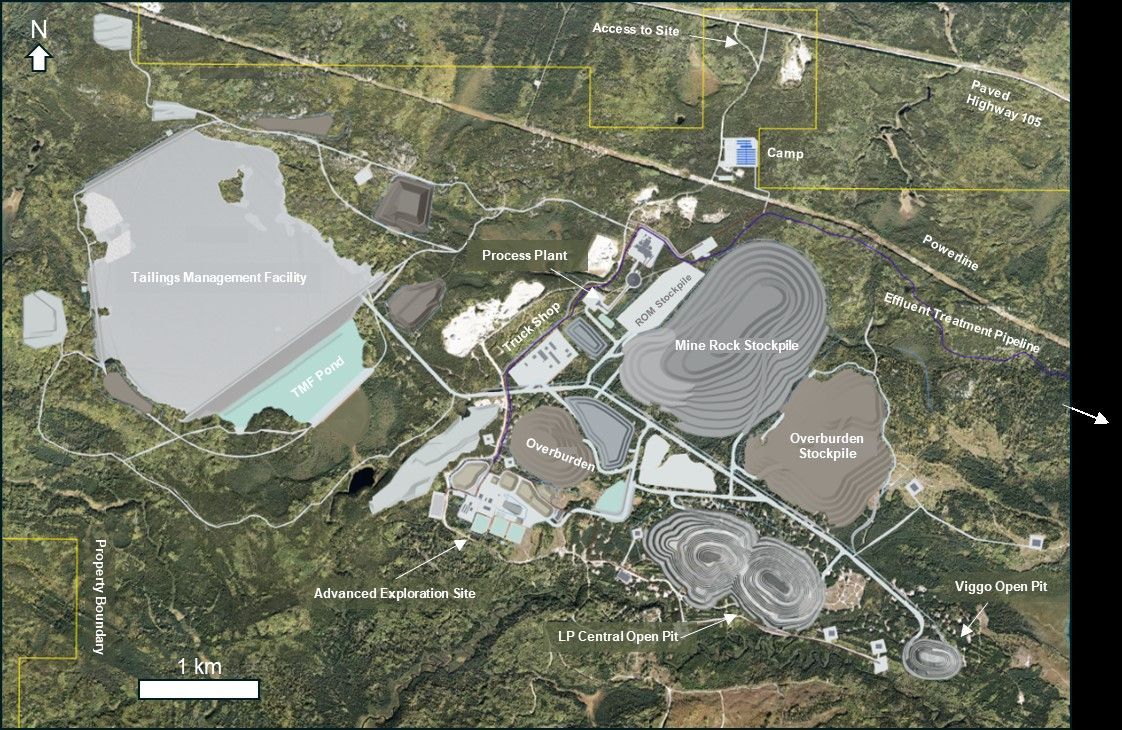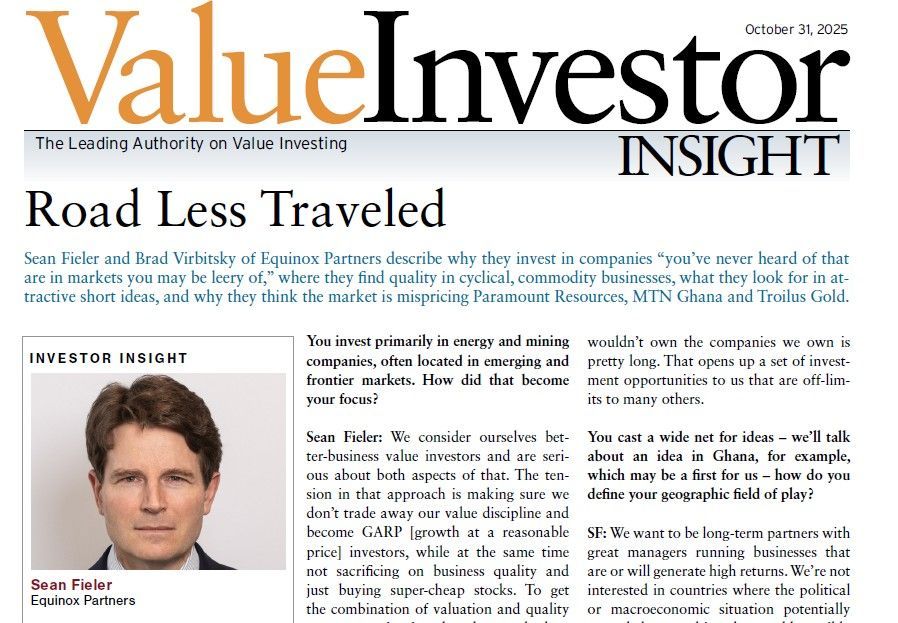Kuroto Fund, L.P. - Q3 2023 Letter
Dear Partners and Friends,
PERFORMANCE
Kuroto Fund appreciated +7.7% in the third quarter and gained +18.2% for the year to day through September 30th, 2023.
Visit our performance page to view the Kuroto Fund, L.P. fund summary in more detail.
QUARTERLY SALES AND PURCHASES
In the third quarter of 2023, we sold two technology companies that we had owned for years as well as a recent vintage Brazilian oil and gas investment. The tech companies, FPT and Logo Yazilim, are great businesses but not undervalued. We exited these companies at a high-teens price-to-earnings multiple on forward earnings. The Brazilian oil and gas producer, while very cheap on projected cash flow, has struggled to grow production according to plan. In all three cases, we felt there were more attractive opportunities for our partners’ capital.
We redeployed a portion of the funds we raised from these sales into two dominant banks trading well below book value and generating 20%+ ROEs. We also purchased a high margin specialty chemicals business trading at a mid-single digit earnings multiple once its new plant ramps up and a West African offshore oil and gas producer with a 30%+ free-cash-flow yield. At the end of the third quarter, our weighting to oil and gas companies was 37%, close to where it stood at the beginning of the year.
NIGERIA Improves
21% of Kuroto Fund is exposed to Nigeria. It is important to note that almost half of our Nigerian exposure derives from oil and gas companies with operations in Nigeria. While these oil and gas companies are Nigerian taxpayers, they are U.S. dollar earners and not directly impacted by the Nigerian macroeconomic situation. Moreover, given these companies’ well-structured investment agreements, their existing production is largely insulated from Nigerian politics.
Excluding the aforementioned oil and gas investments, 11.5% of our partners’ capital is invested in Nigeria, the vast majority of which is invested in Guaranty Trust Holding Company—the nation’s best and largest bank. We have followed Guaranty Trust for more than a decade and have invested in it in the past. We initiated a new position in Guaranty Trust in the beginning of January and continued to accumulate shares during the first quarter. Price appreciation took the position over a 10% weight during the summer. As the country’s best bank, we believe Guaranty Trust is uniquely positioned to withstand Nigeria’s difficult environment and thrive should things improve.
On February 25th of this year, Nigerians elected Bola Tinubu as their president. Tinubu ran on a plan of normalizing Nigeria’s economic policy. Specifically, he promised one exchange rate, the removal of fuel subsidies, and an increase in oil production. Tinubu’s promise of quick reform was seen as credible by the market because of his track record as governor of Lagos State—the country’s largest state with an economy comparable in size to that of Ghana.
To his credit, President Tinubu has delivered. On May 29th, his first day in office, he removed Nigeria’s fuel subsidy. He then fired the head of Nigeria’s central bank and has worked to unify the country’s various exchange rates. While the exchange rate normalization is still a work in progress, there has been a large devaluation and the spread between the informal and official rate has narrowed drastically. Also, he has begun to improve the security situation in the Niger Delta, a prerequisite to higher Nigerian oil production. Oil production has increased modestly in the past several months, but it will take time to reach pre-pandemic numbers. While Tinubu’s reforms helped him win the presidency, the adjustment process will prove difficult. Nigerian consumers and businesses have been hit hard by the removal of the fuel subsidy and lower official exchange rate. It will still take some time for the benefits of Tinubu’s tough medicine to be felt throughout the economy.
As the best managed bank in Nigeria, Guaranty Trust has a solid balance sheet, conservative lending practices, and a net long U.S. dollar position. As a result, the bank is perfectly positioned to withstand Nigeria's short-term economic pain. Guaranty Trust Bank’s conservatism stands in stark contrast to its more aggressive peers. In recent years, as Guaranty Trust moderated its growth, other Nigerian banks took market share. As the Nigerian economy struggles, these market share grabs look increasingly imprudent. One of Guaranty Trust’s biggest competitors, FBN Holdings, was recently forced by regulators to raise equity at a large discount to book. We suspect that several other Nigerian banks will have to follow suit. Guaranty Trust, by contrast, just booked a massive gain on its U.S. dollar exposure and has an overcapitalized balance sheet.
Guaranty Trust’s increasingly dominant position should really payoff if and when the Nigerian economy normalizes. The opportunity to grow lending profitability in Nigeria is enormous. Retail credit to GDP is around 20% in Nigeria compared to 100% in many other emerging market countries. And with only 26% of Guaranty Trust’s assets currently lent to its bank customers, the growth opportunity for the bank is clear when the Nigerian economy stabilizes. In addition to the growth opportunity, Guarantee Trust should experience a healthy increase in its net interest margins as the country raises rates to stabilize its currency.
Sincerely,
Sean Fieler Brad Virbitsky
[1] Please note that estimated performance has yet to be audited and is subject to revision. Performance figures constitute confidential information and must not be disclosed to third parties. An investor’s performance may differ based on timing of contributions, withdrawals and participation in new issues.
Unless otherwise noted, all company-specific data derived from internal analysis, company presentations, Bloomberg, FactSet or independent sources. Values as of 9.30.23, unless otherwise noted.
This document is not an offer to sell or the solicitation of an offer to buy interests in any product and is being provided for informational purposes only and should not be relied upon as legal, tax or investment advice. An offering of interests will be made only by means of a confidential private offering memorandum and only to qualified investors in jurisdictions where permitted by law.
An investment is speculative and involves a high degree of risk. There is no secondary market for the investor’s interests and none is expected to develop and there may be restrictions on transferring interests. The Investment Advisor has total trading authority. Performance results are net of fees and expenses and reflect the reinvestment of dividends, interest and other earnings.
Prior performance is not necessarily indicative of future results. Any investment in a fund involves the risk of loss. Performance can be volatile and an investor could lose all or a substantial portion of his or her investment.
The information presented herein is current only as of the particular dates specified for such information, and is subject to change in future periods without notice.









